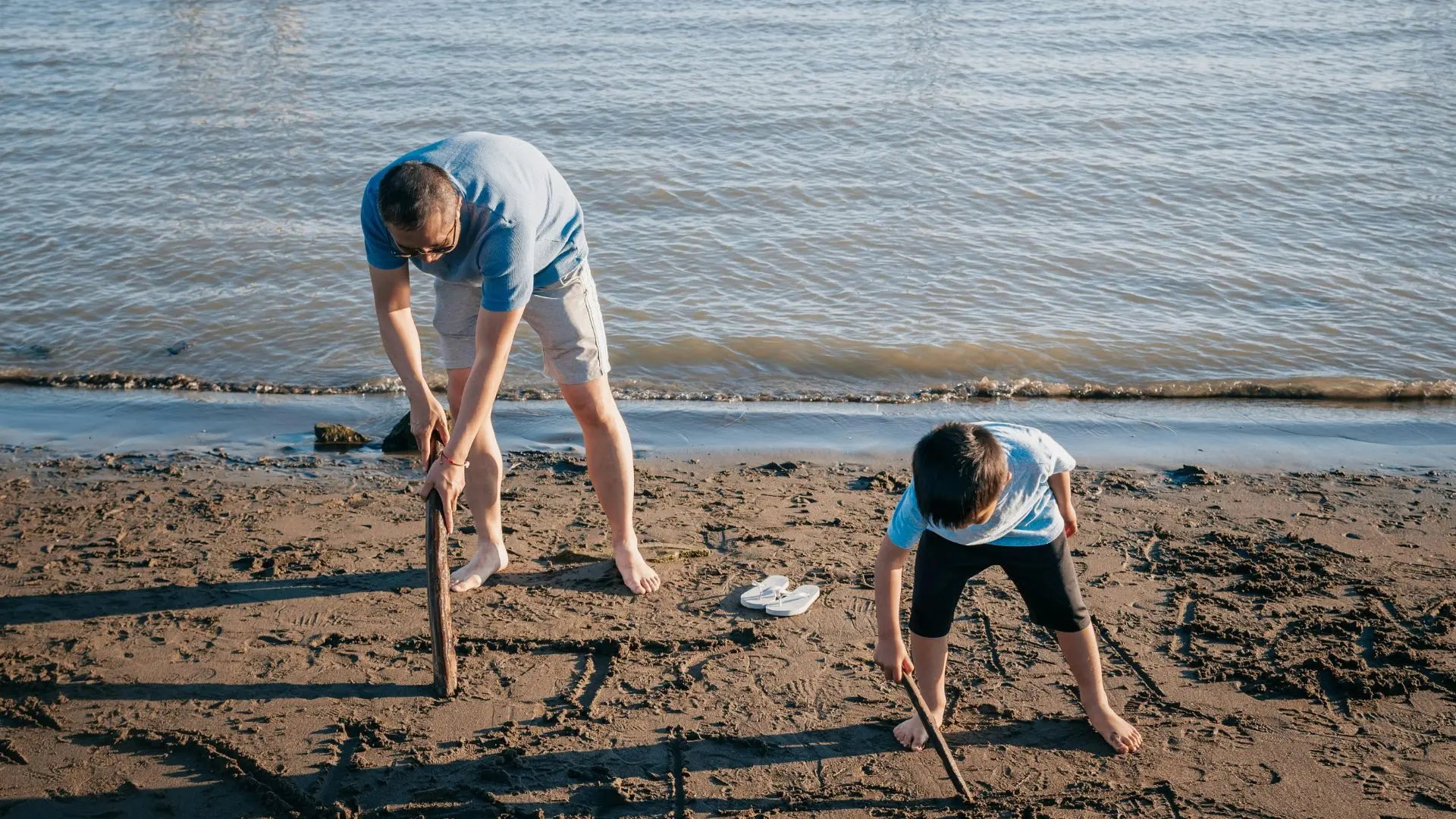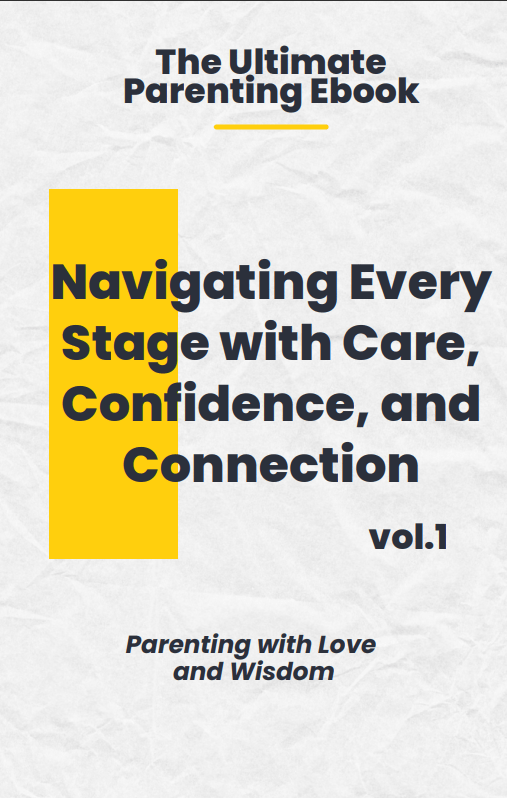Are you struggling to connect with your teenagers? Explore effective strategies for parenting difficult teenagers.

Imagine, you’re sitting at the kitchen table, sifting through a pile of crumpled notes and half-empty soda cans, trying to decipher the cryptic hieroglyphics scrawled across your teenager’s report card. As you take a deep breath and brace yourself for the inevitable confrontation, you can’t help but wonder: where did my sweet, obedient child go, and who replaced them with this defiant, eye-rolling stranger?
Welcome to the wild and wacky world of parenting a difficult teenager—a rollercoaster ride of emotions, challenges, and hair-pulling moments that can leave even the most seasoned parents feeling like they’ve been thrown into the deep end without a life raft. From slammed doors and slammed grades to late-night curfew battles and the eternal struggle for control of the TV remote, raising a rebellious teen can feel like trying to navigate a minefield blindfolded.
But fear not, fellow parents, for you are not alone in this tumultuous journey. In fact, you’re part of a vast tribe of brave souls who have embarked on this adventure before you, armed with wisdom, resilience, and a healthy dose of caffeine. And while there may be days when you feel like throwing in the towel and retreating to a deserted island with nothing but a hammock and a piña colada for company, take heart: there is hope on the horizon.
In the pages that follow, we’ll dive headfirst into the choppy waters of teenage rebellion, exploring the challenges parents face when dealing with their obstinate offspring and offering practical tips, strategies, and insights to help you navigate this rocky terrain with grace and aplomb. So, buckle up, grab a life jacket, and get ready to embark on the adventure of a lifetime—the journey of parenting a difficult teenager.
Table of Contents
ToggleInside the Difficult Teenagers Mind
1. Understanding the Psychology of Teenage Rebellion
Ah, the enigma of teenage rebellion—like trying to solve a Rubik’s Cube blindfolded while riding a unicycle. But fear not, dear parents, for beneath the layers of eye-rolling and door-slamming lies a fascinating world of psychological intricacies. Teenagers rebel for a myriad of reasons, ranging from the desire for independence and autonomy to the need for identity exploration and peer influence. It’s their way of asserting themselves and testing boundaries as they navigate the tumultuous waters of adolescence.
2. Unraveling the Mysteries of Adolescent Development
As if hormonal hurricanes weren’t enough, teenagers are also grappling with profound developmental changes that can turn their world upside down faster than you can say “puberty.” From the surge of hormones wreaking havoc on their emotions to the ongoing construction (or deconstruction) of their brains, every cell in their body seems to be in a state of perpetual flux. Understanding these changes is crucial for deciphering their behavior and responding with empathy and compassion.
3. Empathy
Now, I know what you’re thinking: empathy? Amid a heated argument over curfew, it can feel like the last thing on your mind. But here’s the secret sauce, folks: empathy is your golden ticket to bridging the communication gap with your teenager. Put yourself in their shoes for a moment—imagine navigating the minefield of high school cliques, social media pressures, and academic stressors. It’s enough to make anyone feel like they’re walking a tightrope without a safety net. By empathizing with your teen’s struggles and seeing things from their perspective, you create a foundation of trust and understanding that paves the way for meaningful dialogue and connection.
In the tumultuous landscape of teenage rebellion, empathy is your compass, guiding you through the stormy seas with grace and understanding. So, strap on your empathy goggles, dear parents, and get ready to embark on the journey of a lifetime—the journey of understanding and connecting with your teenager. A trip worth taking.
Mastering Communication with Your Difficult Teenagers
1. Active Listening
Picture this: your teenager storms into the house after a particularly rough day at school, shoulders slumped and eyes brimming with tears. In that moment, your instinct may be to swoop in with a barrage of questions and advice—but hold that thought. Active listening is your superpower here, folks. It’s about more than just hearing words; it’s about truly listening with an open heart and mind, without jumping to conclusions or judgments. By giving your teenager the space to express themselves freely and without fear of judgment, you lay the foundation for trust and open communication. So, the next time your teen opens up about their day, resist the urge to interject with your own opinions and simply listen because it makes all the difference.
2. Assertive Communication
Now, let’s talk about assertive communication—the art of expressing yourself with confidence and clarity while respecting the rights and boundaries of others. It’s like walking a tightrope between being a pushover and being overly aggressive, finding that sweet spot where you can assert your needs and concerns without bulldozing over your teenager’s autonomy. So how do you strike that balance? Start by using “I” statements to express your feelings and concerns without placing blame or judgment. For example, instead of saying, “You never listen to me,” try saying, “I feel frustrated when I don’t feel heard.” It’s a subtle shift, but it can make all the difference in fostering healthy communication and mutual respect.
3. Nonverbal Cues
Ever heard the saying, “Actions speak louder than words”? Well, when it comes to communication with your teenager, truer words were never spoken. Nonverbal cues—such as body language, facial expressions, and tone of voice—can speak volumes, often conveying more than words alone ever could. So, pay attention to your nonverbal signals during conversations with your teen. Are you crossing your arms defensively? Avoiding eye contact? Speaking in a harsh or dismissive tone? These subtle cues can either reinforce trust and connection or create barriers to communication. By being mindful of your nonverbal communication, you can ensure that your message is received loud and clear, fostering understanding and connection with your teenager.
In the labyrinth of teenage communication, mastering effective techniques is your roadmap to connection and understanding. So, strap on your listening ears, find your assertive voice, and let your nonverbal cues do the talking. Before you know it, you’ll be navigating the teenage landscape with confidence and grace.
Building Trust and Connection
1. Prioritize Quality Time
In the hustle and bustle of daily life, it’s easy for quality time with your teenager to take a backseat to other obligations. But here’s the thing: prioritizing quality time isn’t just about checking off items on your to-do list—it’s about investing in the most important relationship of all. So, carve out dedicated time each week for bonding activities that you both enjoy. Whether it’s cooking dinner together, going for a hike, or simply sharing a cup of hot cocoa and a heart-to-heart chat, these moments of connection are the building blocks of a strong and resilient parent-teen relationship.
2. Establish Mutual Respect
Respect—it’s a two-way street, folks. And nowhere is this truer than in the parent-teen relationship. Establishing mutual respect means recognizing and valuing each other’s opinions, boundaries, and autonomy. It means listening without judgment, even when you disagree, and treating your teenager with the same level of dignity and respect that you would expect for yourself. So, the next time you find yourself at odds with your teen, take a step back and ask yourself: am I approaching this situation with respect and understanding? By fostering a culture of mutual respect, you create a safe and nurturing environment where trust can flourish.
3. Encourage Autonomy
Ah, autonomy—the holy grail of teenage hood. As much as it may pain us parents to admit it, our teenagers are growing up and craving independence. And while it may be tempting to cling tightly to the reins, the truth is, empowering teens to make decisions and learn from their experiences is essential for their growth and development. So, give them room to spread their wings, make mistakes, and find their own way in the world—all while offering guidance and support along the way. By encouraging autonomy, you not only foster self-confidence and resilience in your teenager but also lay the groundwork for a lifelong bond built on trust and understanding.
In the delicate dance of building trust and connection with your teenager, prioritizing quality time, establishing mutual respect, and encouraging autonomy are your secret weapons. So grab your dancing shoes, dear parents, and get ready to waltz your way into the heart of your teenager’s world. Trust me, it’s a journey worth taking.
Positive Discipline Strategies
1. Focus on Consequences, Not Punishments
When it comes to discipline, it’s all too easy to resort to punishments that focus on retribution rather than education. But here’s the thing: punitive measures may stop unwanted behavior in the short term, but they do little to teach valuable lessons or foster positive growth. Instead, let’s shift our focus to consequences—the natural outcomes of our actions that provide opportunities for learning and growth. For example, if your teenager breaks curfew, instead of grounding them indefinitely, consider a logical consequence such as temporarily losing the privilege of going out with friends. By tying consequences directly to behavior and focusing on lessons learned rather than punishment meted out, you empower your teenager to take ownership of their actions and make better choices in the future.
2. Reinforce Positive Behavior
In the vast landscape of parenting, sometimes it’s the little things that make the biggest impact. Enter positive reinforcement—the art of recognizing and celebrating your teenager’s achievements and efforts, no matter how small. Whether it’s acing a test, completing chores without being asked, or simply showing kindness to a sibling, every positive behavior deserves a moment in the spotlight. So, shower your teenager with praise, encouragement, and rewards to reinforce those behaviors you want to see more of. By highlighting the positive, you create a supportive and nurturing environment where your teenager feels valued and motivated to continue making good choices.
3. Model Healthy Conflict Resolution
Conflict—it’s a fact of life, folks. But here’s the good news: it doesn’t have to be a battlefield. By modeling healthy conflict resolution strategies, you demonstrate to your teenager how to navigate disagreements and conflicts with grace and respect. Start by practicing active listening, empathizing with your teenager’s perspective, and expressing your feelings and concerns calmly and assertively. Encourage open dialogue, brainstorm solutions together, and find common ground. By showing your teenager that conflicts can be resolved peacefully and constructively, you equip them with essential life skills that will serve them well in relationships, school, and beyond.
In the realm of positive discipline, focusing on consequences, reinforcing positive behavior, and modeling healthy conflict resolution are your tools for nurturing growth and fostering a supportive parent-teen relationship. So, wield them wisely, dear parents, and watch as your teenager blossoms into their best selves before your very eyes.
Seeking Support
1. Encourage Seeking Professional Help
Sometimes, navigating the choppy waters of parenting a difficult teenager can feel like trying to sail a ship through a storm without a compass. That’s where professional help comes in—a guiding light in the darkness, offering support, insight, and tools for navigating the challenges ahead. Therapy or counseling isn’t just for “broken” families—it’s a valuable resource for anyone seeking guidance and support in their parenting journey. Whether it’s individual therapy sessions for your teenager to work through their struggles or family counseling to improve communication and relationships, professional help can provide a safe space for healing, growth, and positive change.
1. Emphasize the Importance of Support Networks
As the saying goes, it takes a village to raise a child—and when it comes to parenting a difficult teenager, that village becomes more important than ever. That’s where support networks come in—groups of like-minded parents who understand the challenges you’re facing and offer a shoulder to lean on when times get tough. Whether it’s joining a local parent support group, connecting with other parents online, or seeking guidance from mentors who have walked this path before, surrounding yourself with a supportive community can provide invaluable encouragement, advice, and camaraderie along the way.
Conclusion
In conclusion, mastering parenting with a difficult teenager requires a multifaceted approach that encompasses understanding, communication, trust, and support. Throughout this journey, we’ve discussed the importance of understanding the teenage mind, communicating effectively, building trust and connection, implementing positive discipline strategies, and seeking support from professionals and peers alike. By prioritizing quality time, establishing mutual respect, encouraging autonomy, focusing on consequences rather than punishments, reinforcing positive behavior, and modeling healthy conflict resolution, parents can navigate the challenges of teenage rebellion with confidence and grace.
As parents embark on this challenging yet rewarding journey, it’s essential to cultivate resilience. Navigating teenage rebellion may test our patience and resolve, but it also offers opportunities for growth, learning, and deeper connection with our teenagers. Remember, every setback is a chance to learn and grow stronger together.
In the midst of the trials and tribulations of parenting a difficult teenager, let us hold onto hope. Despite the challenges, there is always room for growth, healing, and building stronger connections. With love, patience, and perseverance, we can overcome obstacles and forge a bond that withstands the test of time. So, dear parents, take heart and know that you are not alone in this journey. Together, we can navigate the teenage terrain and emerge stronger, wiser, and more connected than ever before.
You May Also Interested in : How Do Past Experiences Shape Father-Son Relationships in Adulthood?
FAQs
1. How can I tell if my teenager’s behavior is normal or if it’s a sign of something more serious?
It’s common for teenagers to exhibit challenging behavior as they navigate the complexities of adolescence. However, if your teenager’s behavior is causing significant disruption or concern, it may be worth seeking guidance from a mental health professional.
2. What if my teenager refuses to communicate or cooperate with me?
Building trust and open communication with a resistant teenager can take time and patience. Try to approach conversations with empathy, actively listen to their perspective, and find common ground. If communication remains difficult, consider seeking support from a counselor or therapist.
3. How can I set boundaries with my teenager without causing conflict?
Setting boundaries is essential for establishing mutual respect and healthy relationships. Clearly communicate your expectations, explain the reasoning behind the rules, and be consistent in enforcing consequences. Approach discussions about boundaries with empathy and understanding.
4. What if my teenager is struggling with mental health issues or substance abuse?
If you suspect that your teenager is experiencing mental health issues or substance abuse problems, it’s crucial to seek professional help promptly. Reach out to a therapist, counselor, or healthcare provider who specializes in adolescent mental health for guidance and support.
5. How can I balance supporting my teenager with maintaining my own well-being?
Parenting a difficult teenager can be emotionally challenging, so it’s essential to prioritize self-care. Set aside time for activities that recharge you, seek support from friends, family, or support groups, and don’t hesitate to seek professional help if needed. Remember, taking care of yourself enables you to be a better support for your teenager.




